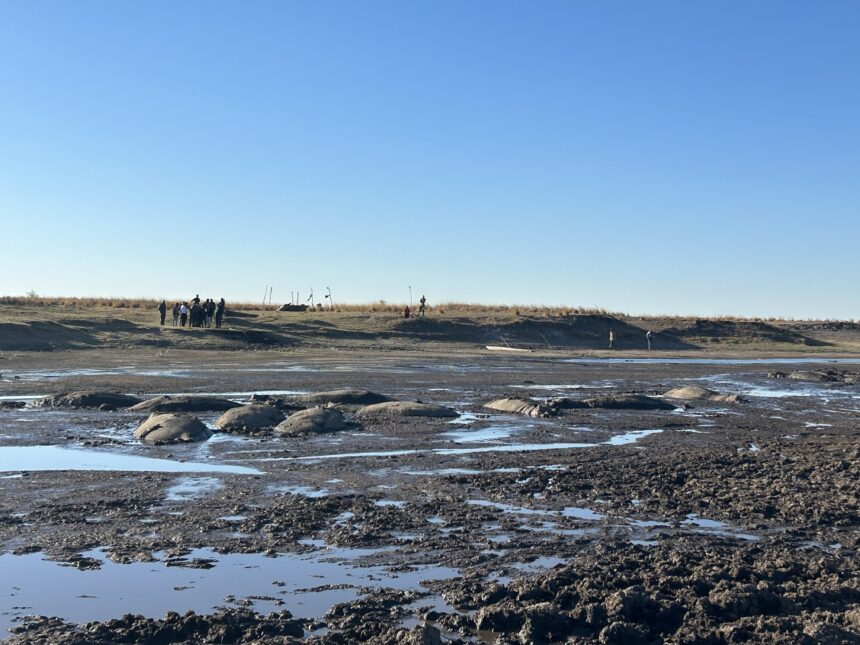KATIMA MULILO – While hippos are on the brink of death in Zambezi’s blistering heat as drought ravages, the Salambala Conservancy wants the government to increase their annual quota allocation for hippos and crocodiles.
Conservancy manager Fabian Libanda revealed that the hippopotamus population in their jurisdiction is estimated at between 3 000 and 4 000 animals. Sadly, the majority of these animals are stranded and unable to move in the muddy ponds as the Chobe River is drying due to the prevailing drought. The situation has left a harrowing sight of the endangered hippos clustered in the mud ponds as they desperately try to cool off and avoid sunburn, as temperatures soar and water evaporates due to the scorching sun.
Despite this, the conservancy has requested the government to increase its annual allocation for some of the endangered species such as hippos, crocodiles, buffalo, and zebra, which are in a dire situation due to drought.
“We are generating income from trophy hunting. We have a lot of hippos in the conservancy, and if you look, they are just suffering in the mud. There are also abundant elephants, buffaloes and zebras. That is why we are requesting the state increase our quotas so we can harvest more of these animals that are now dying. If the government increases our quotas, we can generate more income, support members of the conservancy, and cover our day-to-day expenses,” Libanda said.
Environment minister Pohamba Shifeta, who also recently assessed the situation of the stranded hippos, promised to look into the conservancy’s request. Shifeta however, said priority should be given to saving the stranded hippos.
The ministry’s spokesperson Romeo Muyunda said earlier this week they are monitoring the situation. “We remain committed to resolving the situation. The delay has been with the delivery of the water pump we ordered, which pumps more water than the existing one. We ordered it three weeks ago, and we anticipated receiving it by Friday [today], but it did not arrive. But we are hopeful we will receive it this week, so we can pump more water,” Muyunda said. The quota for hippos is three animals per year, of which two are for use by the conservancy and one for trophy hunting.
The conservancy is allocated two crocodiles per year, of which one is for its use and the other for trophy hunting. Libanda said elephants stray into the conservancy, which is adjacent to Chobe National Park in Botswana, in search of water and food, which poses a danger to local villagers.
Namibia’s growing elephant herd of around 24 000 continues to trigger human-wildlife conflict with local communities.
“Recently, our colleague was killed by an elephant. They roam the villages near Ngoma day and night, moving around schools and offices. Baboons also enter school hostels and steal food from pupils. Lions, buffaloes, zebras, water bucks, antelopes and hyenas also threaten villagers and their livelihoods,” he said, adding that this is why they are requesting an increase in their allocation of the animals. The total quota allocation for zebras is 33, of which 10 are for trophy hunting and 23 are for the conservancy’s use.
There are seven buffaloes, of which five go to trophy hunters, one to the conservancy, and the other goes to the traditional authority.
Two warthogs are allocated for trophy hunting, while a total of 11 wildebeest
are allocated, with five going to trophy hunters, five for the conservancy, and one for the traditional authority. A total of 20 impalas are allocated, with 10 for trophy hunting, seven for conservancy use, and three for the traditional authority.
The two kudus allocated are for trophy hunting, as is the one giraffe. The only benefit the conservancy gets on quota allocation per year is the100 percent own use for bird species set at 50 red-billed francolin, 100 guinea fowl, 25 Egyptian goose, and 50 white-faced ducks.



